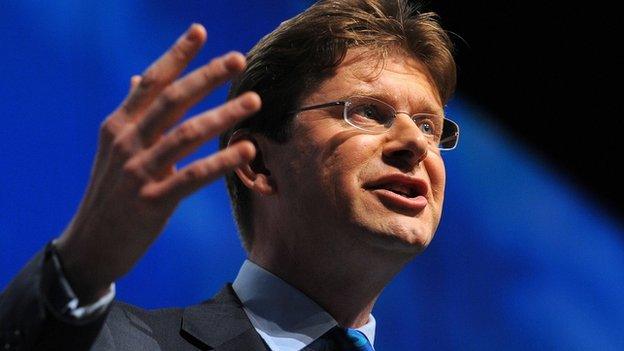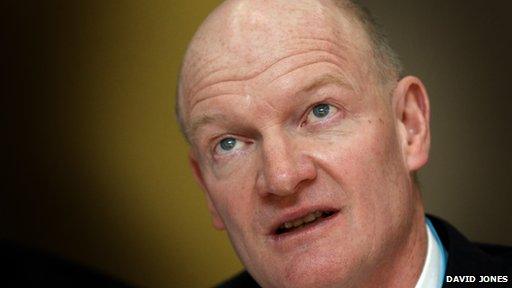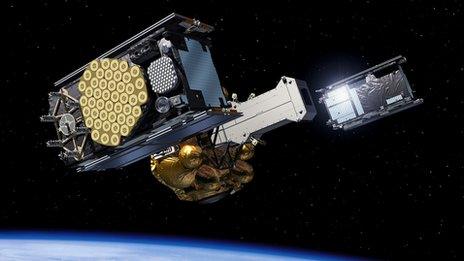Science minister has tough job to follow
- Published

Greg Clark: Links with George Osborne should hold the science Community in good stead
Greg Clark has a tough act to follow as the new science and universities minister, commentators say.
Mr Clark has tweeted that he's "thrilled" to be appointed and that he will build on the work of the "brilliant" David Willetts.
He will combine the role with his existing portfolio as cities minister.
One of his first tasks will be to convince the research community that the importance of science has not been downgraded as a result of the merger.
Owen Paterson was removed from his post as Environment Secretary in the reshuffle. The 38-year-old Liz Truss will take over the brief from him.
Mr Clark is an economist and a former treasury minister. He has a reputation for being a deep thinker and in the same analytical mould as his predecessor David "two brains" Willetts.
Many in the scientific community hope that Mr Clark's links with the Chancellor, George Osborne, will stand them in good stead.
He will however have to answer questions about his decision to support a Parliamentary motion, external supporting the availability of homeopathic medicines on the NHS in 2007.
It is thought he did so because he has a homeopathic hospital in his Tunbridge Wells constituency. Mr Clark will no doubt be asked whether he believes homeopathic remedies are effective and if he would advocate their use to treat serious illnesses.
The science minister's primary role is to oversee research spending and the running of universities. In science, his chief aim will be to hold together the research base which has been creaking under the weight of having to shoulder year on year real terms cuts.
It has been reported that the science brief will be split with the appointment of George Freeman as life sciences minister. But the role has existed before and is likely to have been recreated because of the strategic importance placed on the sector.
Mr Willetts will be a tough act to follow - he has received warm tributes from the scientific community following his departure.
His critics say he oversaw a real terms cut in science spending. His fans, who are in the vast majority, argue that he saved science from the axe and used his considerable guile to win over the support of Mr Osborne.
Mr Willetts' achievements include nurturing the vibrant UK space sector and he was due to take a salute from the community for announcing plans to have a UK launch site for space planes at the Farnborough Air show today. He is also said to have played a big part in the selection of British astronaut Tim Peake for a mission to the International Space Station next year.
Prof Sir Paul Nurse, president of the Royal Society, said Mr Willetts had been an "outstanding" science minister and Dr Jeremy Farrar, director of the Wellcome Trust, said Mr Willetts would be "sadly missed".
The former Astronomer Royal, Prof Lord Rees, described him as a really "really admirable politician".

The former science minister David Willetts will be a tough act to follow
- Published21 October 2010
- Published9 November 2012
